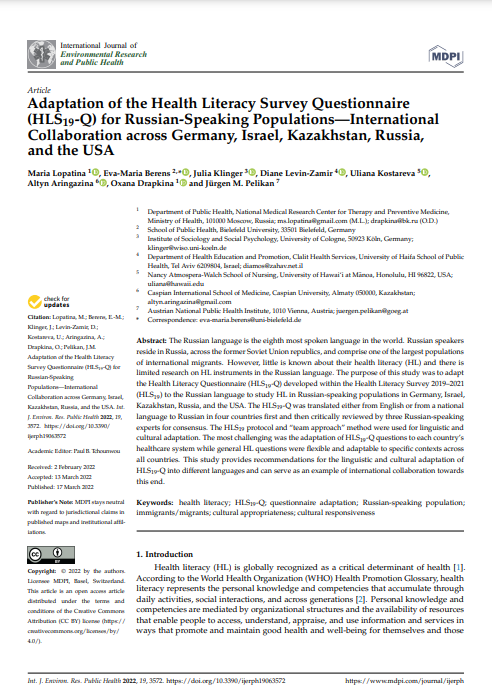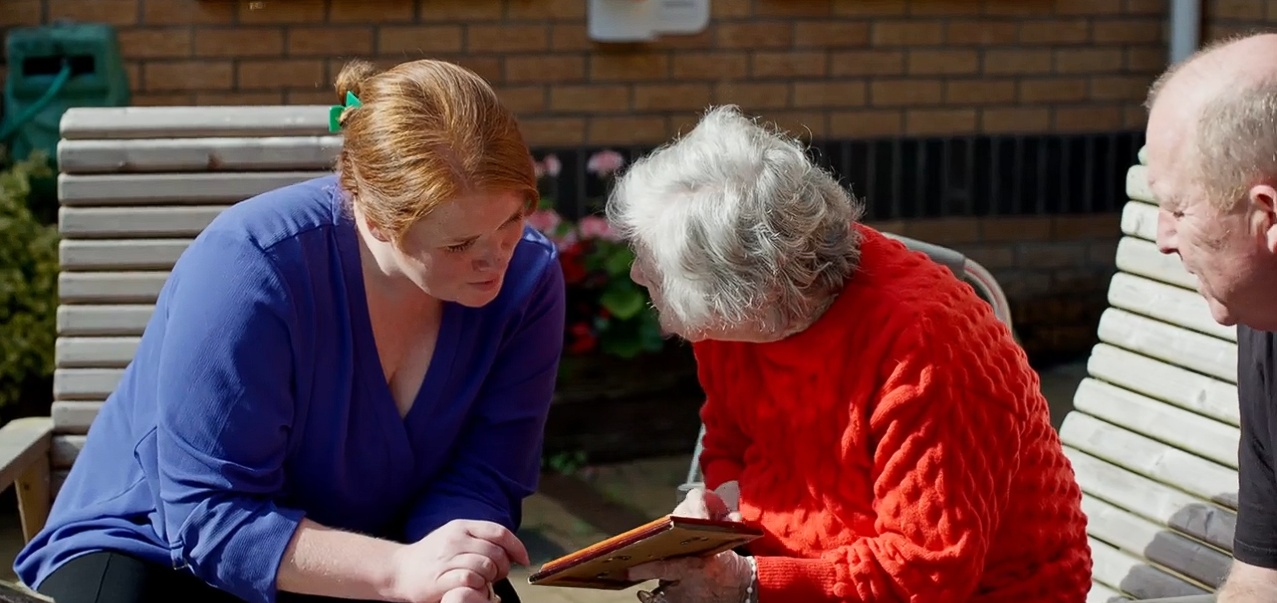
-
Source
Adaptation of the Health Literacy Survey Questionnaire (HLS19-Q) for Russian-Speaking Populations—International Collaboration across Germany, Israel, Kazakhstan, Russia, and the USA
Abstract
The Russian language is the eighth most spoken language in the world. Russian speakers reside in Russia, across the former Soviet Union republics, and comprise one of the largest populations of international migrants. However, little is known about their health literacy (HL) and there is limited research on HL instruments in the Russian language. The purpose of this study was to adapt the Health Literacy Questionnaire (HLS19-Q) developed within the Health Literacy Survey 2019–2021 (HLS19) to the Russian language to study HL in Russian-speaking populations in Germany, Israel, Kazakhstan, Russia, and the USA. The HLS19-Q was translated either from English or from a national language to Russian in four countries first and then critically reviewed by three Russian-speaking experts for consensus. The HLS19 protocol and “team approach” method were used for linguistic and cultural adaptation. The most challenging was the adaptation of HLS19-Q questions to each country’s healthcare system while general HL questions were flexible and adaptable to specific contexts across all countries. This study provides recommendations for the linguistic and cultural adaptation of HLS19-Q into different languages and can serve as an example of international collaboration towards this end.




